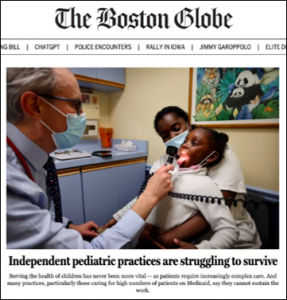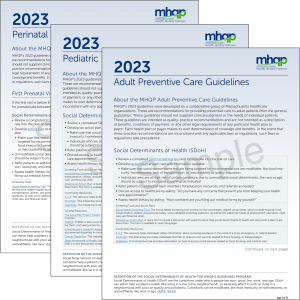Autumn Bailey, Symone Woodham and Julia Banas Bring Fresh Perspectives to MHQP
(September 2023)
Over the past two years, MHQP has been pleased to have added a new cadre of young talent, as we have welcomed Julia Banas, Symone Woodham and Autumn Bailey to our staff. Each brings a unique background and offers a unique set of skills. Yet they all share two things in common: an interest in public health


 (September 2023)
(September 2023) (June 2023)
(June 2023) (June 2023)
(June 2023) (May 2023)
(May 2023) MHQP is pleased to announce that we have again been selected by the Executive Office of Health and Human Services (EOHHS) for the Commonwealth of Massachusetts as its vendor to survey members of MassHealth, the state’s Medicaid program, about their experiences of care. MHQP completed a five-year contract for
MHQP is pleased to announce that we have again been selected by the Executive Office of Health and Human Services (EOHHS) for the Commonwealth of Massachusetts as its vendor to survey members of MassHealth, the state’s Medicaid program, about their experiences of care. MHQP completed a five-year contract for When Barbra Rabson joined MHQP as its part-time executive director in April 1998, MHQP was not yet an official organization. In fact, she started out as a contractor for the Massachusetts Hospital Association, which was serving as MHQP’s incubator.
When Barbra Rabson joined MHQP as its part-time executive director in April 1998, MHQP was not yet an official organization. In fact, she started out as a contractor for the Massachusetts Hospital Association, which was serving as MHQP’s incubator. (April 2023)
(April 2023) Through a Special Initiatives grant from the Blue Cross Blue Shield of Massachusetts Foundation (BCBSMAF), MHQP has launched a new project designed to help better understand why Asian patients report worse experiences with primary care than other racial populations. A deeper understanding requires a more nuanced consideration of the
Through a Special Initiatives grant from the Blue Cross Blue Shield of Massachusetts Foundation (BCBSMAF), MHQP has launched a new project designed to help better understand why Asian patients report worse experiences with primary care than other racial populations. A deeper understanding requires a more nuanced consideration of the